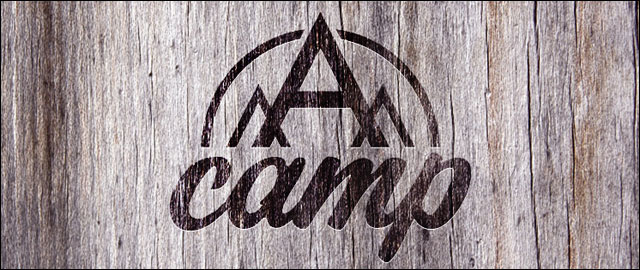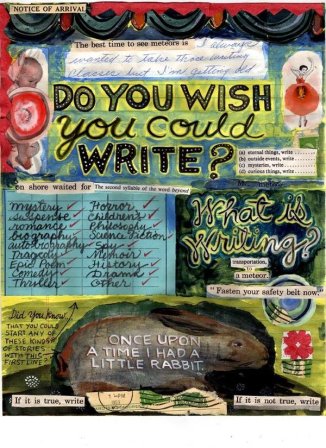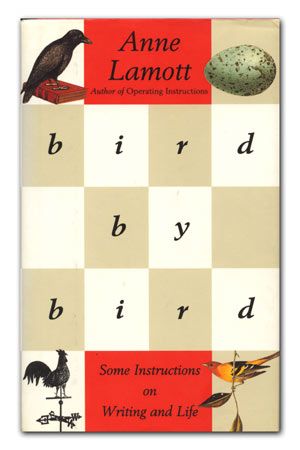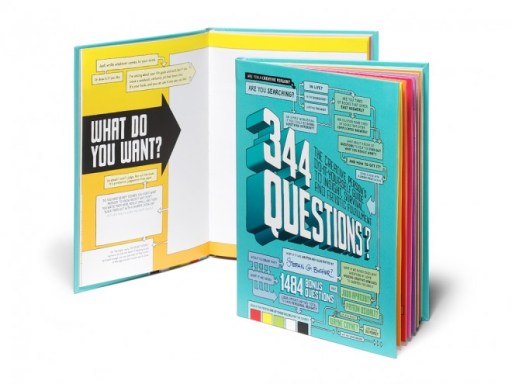
Writing: a cool thing that anyone of any age can do with nothing more than a pen and paper, for fun and profit! Just kidding about the profit part. If you’re here for profit, you should probably do something more sensible, like open a combination whiskey bar/meditation center, or a theme park that caters exclusively to pet capuchin monkeys and their owners. Also, if you’re here for fun, you might still be out of luck. Even those who have devoted their lives to writing and love it passionately don’t necessarily think of it as “fun.”
But that doesn’t mean it isn’t good, or important, or sometimes life-saving. There’s a reason why the personal essays and first-person columns are some of the most popular and most affecting pieces on Autostraddle; they can be incredibly powerful to read, but also to write. Writing about your own experiences, whether it’s through memoir or essay or slam poetry or leaving post-its about the sandwiches your mom used to make for your lunch on lampposts, can be empowering and life-changing, even without anyone else reading it.
So if you’re interested in talking a little bit about yourself (even if it’s only to yourself! That’s okay!), here are some ways to get started.
![]()
To me, the First and Most Important Thing is Journaling. I think everyone I’ve ever looked up to or has helped me in life, from teachers to therapists to my mom, has been very adamant about how good it is for you to keep a journal. This can sound very boring, because duh, you were there, why do you have to write it down. This can also sound really intimidating — I have a really brilliant poet friend who has very white teeth and perfect bone structure and has a real chapbook from a real press coming out soon and is generally an excellent but also very intimidating person, and he starts every day with an hour of Serious Journaling. When I remember this, it generally sort of makes me want to die and also commit to never writing anything again because it sounds hard. But it’s not hard! And it’s not intimidating, really.
For me, the key to reminding myself of those things and also actually writing is first to buy a non-intimidating journal. Because I am ~a writer~, many a well-meaning person has gifted me with beautiful $25 journals with like gilded angels on the front and matching silver unicorn pens (that is a real thing, not a joke). This is a wonderful gesture, but because I am also ~full of anxiety~, I can’t bear myself to sully it by ever actually writing in it, because nothing I write will be worthy of that notebook. Instead, I suggest a plain old composition notebook which you can label on the front with the date you started the notebook and the date you finish it (or if you’re feeling a little fancy, a black notebook like this). This way, if all you end up writing some days is “UGH I can’t even deal with how cute that barista is, I want to kiss EVERY PART OF HER FACE,” you don’t have to feel like you’re too lame for your journal.
Speaking of that, though, what are you going to write? If you feel a total blank, or are worrying that you need to write a lyrical essay about the cloud formations and how they remind you of your mother, you might be well served by just starting with Lynda Barry’s four-minute journaling exercise. It’s only four minutes! Really! And if you feel all jazzed afterwards and want to expand on one of the things you mentioned in those four minutes, hey, the journal is your oyster.
Over time, as you keep doing this, you’ll find that some recurring themes might emerge, and that’s cool! Those are some things you might want to explore via more specific and focused writing, or a whole essay. One way to do this is freewriting — a word which means different things to different people. When I say it, it usually means free-association writing done by hand on a piece of paper, writing down whatever comes to mind on a given topic without editing or censoring yourself as you write. It often helps to give yourself a set amount of time for a freewrite — set an egg timer to 15 minutes or more if you want. Depending on the nature of the topic, some people recommend beginning a freewrite with the words “I remember” or “I am.” If you draw a blank or feel stuck while writing, you can start a new sentence with “I remember” or “I am” and start up again.
If there’s a specific memory or event that you’re trying to write about, it’s sometimes helpful to start with a specific “scene” or moment. Maybe you want to write an essay about the time you went on that picnic and Jeff Goldblum turned out to be filming in the same park, and you shared your sandwich with him. What exactly were you doing when you first looked up and saw the cameras? Did you drop your bowl of potato salad? Were there birds singing? Starting in medias res can be a good way to get started when you don’t know how to get started, and there’s always time to go back and explain things later.
If you’d like something more structured, I’d like to recommend Lynda Barry’s 7 1/2 Minute Writing Exercise, which I sometimes use for the classes I teach of incoming freshman college students who could write their own book on How To Be Very Sullen About the Prospect of Having to Write Three Entire Double-Spaced Pages. Feel free to cut out whatever you want, because the whole thing can be something of a to-do, and maybe watch the video once first so that you know what you’re getting yourself into. Overall though, I think this is a super worthwhile and productive way to spend like 20 minutes of your life.
This is mostly as far as I, a person who mostly just makes fun of Republicans’ haircuts on the internet, can take you. But that doesn’t mean you have to stop here! Here are some of my favorite resources for writing about yourself, or anything else:
What It Is, by Lynda Barry

Maybe you have noticed by now that this entire article is essentially one big ladyboner for Lynda Barry! Barry is a super cool lady who wrote a popular alt comic for almost 30 years, and now runs workshops on “Writing the Unthinkable” which are aimed largely at non-writers. She’s super fun and loud and probably crazy, which I think is an important positive quality. Here’s a neat NYT profile of her and her workshop. What It Is is an indescribable collection of ideas and images and questions and illustrations, a combination workbook/memoir/visual masterpiece that is many things, but is above all inspiring. Also, here’s Lynda Barry talking in the intro to one of her workshops, just so you can get a sense of how cute and weird and perfect she is if you’re so inclined.
Bird by Bird, by Anne Lamott

This book has become gospel for many a writer, and for good reason. This is sort of mostly in reference to fiction writing, but that’s not really important, I don’t think. What’s most genius about this book is how accurately it’s able to pinpoint the awful feelings of total failure at both writing and personhood that most, if not all, writers experience, and which often turn out to be bigger obstacles than any challenge that actual writing could ever pose. When you feel like even your laptop is ashamed to be seen near you and the paragraph you just wrote, Lamott is like somebody handing you a Xanax and a whiskey sour and then petting your head and telling you you have really great cheekbones.
344 Questions: The Creative Person’s Do-It-Yourself Guide to Insight, Survival, and Artistic Fulfillment, by Stefan G. Bucher

This is not technically a writing book at all, but bear with me. The premise of this book revolves around asking yourself a series of questions about your life and what you want out of it, which may well help you towards insight and fulfillment, but may also lead you towards some really important writing about your own life! One of the questions posed on Page 4 is “Who are the ghosts that haunt you? And why? (Take into consideration that it could be the ghost of a younger you.) I don’t think it would be overstating the thing to say that like 80% of all good memoir and creative nonfiction is in answer to that question. Right now this book is only $5.40 for the Kindle edition, but also, sort of the point of the book is that you can write your answers to the question inside the book itself, so maybe don’t buy the Kindle edition like I did. Whatever. You do you.

:D Lynda Barry is my HERO!!!!!!! I met her at a book signing and got my What It Is book signed, best night of my life. Since getting that same book 4ish years ago I have been obsessed with everything from her. I read all of her books multiple times a year. Basically, anything by her will be a good read, and she’s genius. Oh and check out her tumblr she posts regularly thenearsightedmonkey dot tumblr dot com.
Thank you for this awesome and inspiring post. I haven’t been writing or journaling at all lately and I need to get back into it. Also, yay Lynda Barry! I’m pretty sure is my school’s (Evergreen’s), like, most famous lady graduate (other than Carrie Hotstein). Definitely going to pick up What It Is now! And the questions book ‘cos I love questions.
Man. I’ve always wanted to be a good writer but I simply cannot put into words what I am trying to say EVER!
I think “good writer” is subjective as there are different ways one can express words and themselves. What may be a “good writer” to you, may not be a “good writer” to me, etc. The key to writing is simple, just do it, for yourself. You’re the only person who can express your “being” and you’re the only person who lives in your skin. Even if it’s just one word, or a few words, or more of a symbolic or artistic doodle, it’s something and you are expressing something. You can always come back and expand on that at a later date.
Ha, I have 344 Questions: The Creative Person’s Do-It-Yourself Guide to Insight, Survival, and Artistic Fulfillment, by Stefan G. Bucher, on my Amazon wishlist (among many other gazillion things). I read the reviews and it definitely recommends not getting the kindle version because it’s an interactive book, that requires you to fill things out, etc. It’s pretty cool that it gets a mention on AS.
“nothing I write will be worthy of that notebook.”
^This! I know that feel. Never try to use a fancy-schmancy notebook unless you already have god-like uber-confident writing powers. I use loose leaf paper so I can rearrange pages as I write.
Can I recommend Brenda Ueland’s If You Want to Write? She really draws out the importance of cultivating a healthy relationship with your work.
Wow. this is SO RELEVANT TO MY LIFE right now. I’ve been journaling for twelve years now, pages every day almost, and I’m at a point where I’m wondering what’s next. When does all this self-reflective writing become too analytical… when does it stop being useful & just indulge all the crazy FEELINGS spinning around? What can I write that is CREATIVE, not just reflective? SO MANY QUESTIONS. maybe lynda barry has the answers.
As I endeavor to write college admissions essays about personalstuff that don’t sound canned and forced, this is relevant and helpful.
Like an undoubtedly notable number of people, I spent a lot of time writing out all my thoughts and feelings when I was a) first coming out (to myself and others), and b) in the midst of my first infatuation with a cute, witty, incredibly artistically talented sardonic babe of a classmate. I still get a strong sense of satisfaction from reading over those writings and taking in the perfect way I described things for myself for later on. It’s also a great opportunity for self-learning.
I also genuinely wish that every person I know would write an autobiography, and also take me seriously when I suggest this!
I’ve kept a journal a few times but I always get paranoid that someone’s going to read it haha. I guess now that I don’t live at home I wouldn’t have to worry about little brothers if I started one.
This was such an awesome post!
Maybe this is pure laziness, but I find pen to paper such a slow process that I don’t think I can accomplish much writing in a short amount of time. Yet, creating a journal-type blog doesn’t seem the greatest way to preserve thoughts either, and I have a paranoia that the blog might miraculously disappear one day,
Bird by Bird was required reading for a creative writing class I took my Freshman year in college…I’m both ashamed and proud to admit that it was the only book, other than Aldous Huxley’s “Chrome Yellow” that I finished that semester. And definitely the only one I’ve read multiple times since then. It just gives me so many feelings!
I really like Lynda Barry (thinking about Cruddy still makes me feel slightly uneasy—which I consider a good thing, I guess), and I really like your writing (p.ej.: “When you feel like even your laptop is ashamed to be seen near you and the paragraph you just wrote”), and I really liked this post.
(This comment may make it seem like I really like everything, but I don’t; I’m a sharply discerning commenter who knows what’s up.)
“nothing I write will be worthy of that notebook.” — I was so convinced that I was the only one who felt intimidated by a notebook! I feel like fancy notebooks deserve fancy content, so they receive minimal use. I usually save them for bucket lists or premeditated thoughts. I’ve filled my fanciest notebook with my favorite quotes and poetry… no idea why I’ve started on this tangent. Probably because I secretly resent the challenge of putting ostentatious notebooks to use.
I started journaling on a regular basis and have found myself repeating many of the same things over and over, so this article and the book suggestions are really relevant to my life. Definitely appreciated!
Lol, it´s the same for painter, illustrater and folks – the fancier the paper, the more intimidating. Now imagine inking skin… Woo!
Rachel, you get me.
The feels of hope for my writing skills are overwhelming. THANKS.
Just Write:
I do not write to be good
I write to feel
To beat within the minute
To break the fragile shell
That holds life
Emptying its contents
Into the torrents
I do not want to be good
I want to feel again
As skin falls
Marking the ever moving
Ever slowing climb
Brushing away the strays
Leaving piles in the past
Our monuments to pain
I do not write to be free
I write to be lost in words.
Just write guys. It’s not about ‘good’ writing. It’s simply good to write.
I wish there was a similar book for tattoo artists because I sometimes feel like my pencil is judging me when I sketch an idea. How in ink´s name could I make it from paper to skin when I feel like loosing all the crativity?
ganh…
This came at a good time because I’m beginning to doubt my ability to write, and with that, my “personhood,” as you put it so beautifully. Writers tie their self-esteem to how well they write. You can guess it turns into a form of self- mutilation after a while. Thank you for posting this. It’s good to be reminded that writing can be a positive and self-affirming experience.
Aahh, despite having read Lynda Barry in alt weeklies since I was a kid I somehow did not know that she looks exactly like a Lynda Barry character! Amazing.
This one’s a little more abstract — and not entirely encouraging, haha — but probably my favorite “writers writing about writing” book is Annie Dillard’s The Writing Life. It’s short! and bracing and beautiful, as is everything she’s done.
In a similar genre but for poetry, Kenneth Koch’s Making Your Own Days is a bright, joyful examination of how poems work and how you can make them work, too, with lots of examples from all over literature.
So. I started playing the Writing to Remember video in the background while working, thinking I’d just half listen to pass the time. I didn’t realize it’d be so freaking funny and amazing, like legit LOL-ing funny. So now I’m derailed from work, but in a good mood. Holy crap. Esp re: Bob Costas slash everything.
I found this article on autoethnograhy writing and academia particularly poignant : http://thefeministwire.com/2012/09/storytelling-or-autoethnography-in-the-academic-industrial-complex/
Acamp brought up a lot of things I want to write about but those very things are leaving me too emotionally exhausted to continue.
i’m about to be late to class cause i couldn’t stop at the 2nd part of that lynda barry talk. so worth it.
(also, i’m a literacy tutor in an urban middle school and i can’t wait to use some of these techniques with my students!)
thx, rachel <333
That’s nice. Me, I’m not really a good writer, and I’d never really have anything interesting or worthwhile to write about, but it’s good for people to enjoy what they do.
The bit about buying a plain notebook is 100% true. I have two different journals, one made out of fancy, recycled paper with gold embellishments to make it look like an old styled book, and a bright red composition book I got in a pack of two for $1.50
I try to write in them both. But when I write in the one that looks like a restored copy of an original Fitzgerald book or something, I can’t focus on what I’m saying and instead look at how neat my handwriting is, or see how many token words I can use. It’s a frustrating process and nothing good ever really comes from it. But my bright red notebook is full of sketches and phrases and quotes and stories which just pop in my head and incomplete thoughts. It is so much more freeing to write in, more entertaining to look back on and read, and I’m much more proud of it. It’s a much better representation of me than anything I’d ever write in a fancy notebook.
This is so great. I’ve read Bird by Bird several times & What It Is is my one of my favorite books for inspiration.
I really like Ray Bradbury’s “Zen In The Art of Writing”. It’s a classic for all the right reasons. It’s easy to read and inspiring and makes you feel like he really gets you. :)
If I squint my eyes, Lynda Barry in that video is what I imagine the small picture of Rachel will look one day (which is to say, awesome).
Also, this post is highly relevant to my life as all of my previous journaling attempts have failed, but what I’ve done so far after reading this is the most successful. Either this really motivated me to write or else I’ve done a poor job at recording things so far (perhaps some combination of these two).
this is relevant to my life right now because I have been working on my personal statement for med school apps (which i won’t even be applying to until next summer) and it is the crazy intimidating thing because I feel like there is nothing about me or my life worth writing about, and how am I supposed to write something to make medical schools want me if I can’t write anything good about myself?
also i have been considering writing some poetry to read at my college’s open mic night, but this prospect is terrifying for me, and again I don’t know if I can write anything good enough
Rachel, this was fantastic. I consider myself a writer but recently have gone through a rut-feeling a big lack of inspiration. Thank you, thank you.
Oh god, you’re like that, too? My friends have gotten me nice journals and writing books because they know I write fiction, but I still have them in their cellophane wrapping because they’re too pretty to tarnish.
Pingback: It’s Monday! What Are You Reading? (June 9, 2014) | Leslie Ann, librarian-at-arms
Fortunately, there are now many more useful tips for better writing. After completing your work, edit it and check for plagiarism. Read the text carefully, correct spelling, punctuation and stylistic errors. Make sure all source citations are formatted correctly. If you don’t have time for this, you can always find help here eduboard.com